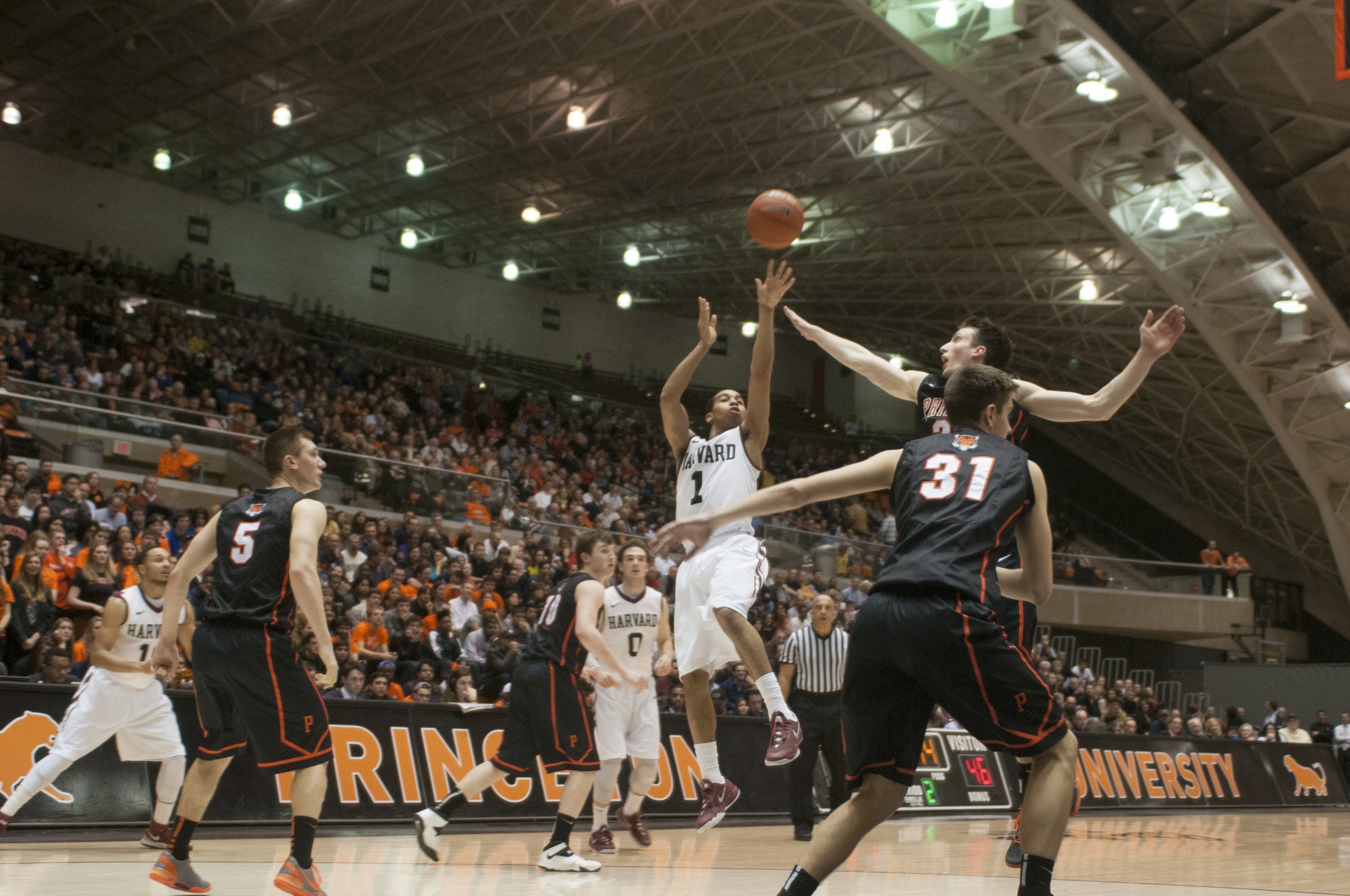
News
Harvard Quietly Resolves Anti-Palestinian Discrimination Complaint With Ed. Department

News
Following Dining Hall Crowds, Harvard College Won’t Say Whether It Tracked Wintersession Move-Ins

News
Harvard Outsources Program to Identify Descendants of Those Enslaved by University Affiliates, Lays Off Internal Staff

News
Harvard Medical School Cancels Class Session With Gazan Patients, Calling It One-Sided

News
Garber Privately Tells Faculty That Harvard Must Rethink Messaging After GOP Victory
Basketball Fares Well in Historical Comparison

Less than a week ago, after watching Harvard clinch the Ivy League on his home floor, Yale men’s basketball coach James Jones took the podium. Clearly frustrated by his team’s inability to hit big shots down the stretch, Jones was understandably terse with the media. Late in the press conference, however, when asked about the “Harvard dynasty,” he had this to say:
“I thought last year’s team was better than this year’s team.”
Jones’ sentiment is certainly unusual. Last year’s team expectations were dimmed with the departures of seniors Kyle Casey and Brandyn Curry. It came together late, winning nine of its first 10 Ivy League contests, and memorably winning its first tournament game.
This year’s team came in with many more accolades. Curry and Casey, both All-Ivy honorable mentions in 2014, came back. Freshman Zena Edosomwan, the first top-100 recruit to choose Harvard, stepped on campus after a one-year sojourn at prep school Northfield Mount Hermon. After the Crimson beat Yale, Sports Illustrated wrote of the league title, “we already know that isn’t enough.”
While part of this unit’s legacy has yet to be settled, I set out to tackle Jones’ contention within the scope of a larger question: Where does this squad rank among the historical Ivy greats? The most successful conference team in recent memory is easily the 1979 Penn Quakers, the last league team to make the Final Four.
With that in mind, I looked at each of the last 34 Ivy champions. The numbers not only indicate that this year’s Harvard squad was significantly better, but that last year’s Crimson team might have been one of the league’s worst champions in the last three decades.
The 2013 unit was middle of the pack by the Rating Percentage Index (RPI), an important metric used by the Tournament Selection Committee to evaluate a team based on its winning percentage and quality of opponents. But RPI doesn’t take into account margin of victory, on which the team scores significantly worse The 2012-2013 Crimson had an average conference margin of victory of just 4.2 points, eighth worst in the sample. It won seven league games by single digits and only two by 15 points or more. This year? The team’s 13.3-point average margin of victory ranked third and it recorded seven 15-point wins during league play.
Overall point differential treats last year’s team even worse. While the 2013-2014 squad ranks ninth in the sample at an average margin of victory of 15.4 points a game, last season’s squad is the worst of the 34, checking in at 5.2.
Neither can last year’s team claim the conference was better a season ago. As a proxy for league difficulty, I looked at the league-average RPI for the last 10 years. Last year, the average was a tick above 217—with 351 teams in Division I, that’s a pretty strong indictment of the league’s quality of play. This year? 194.
Neither team boasts a significant nonconference victory, but the 2014 squad was far more consistent, losing just four games and tying a school record with 26 wins. Last year’s team holds, as of now, a significant advantage over this year’s squad—an NCAA Tournament victory. Since the Ivy is just 7-33 in the tournament since 1980, with Harvard’s victory last year the league’s best in the span, the win is quite a feather in its cap.
Neither the best nor the worst team came from Cambridge. The 1997-1998 Princeton squad, which went 27-2 and earned a five seed in the NCAA Tournament, blew out opponents by 15 points per game and earned an RPI of 21.
If that was the Ivy League best, the 1985-1986 champions from Brown—the school’s last winner—might be the worst. Those Bears tied for the fewest wins ever by a champion with 10, and on the season were outscored by an average of 2.2 points every time they took the court.
But if there’s any moral of this story, it’s that this team’s legacy will have to wait to be settled. Of the 10 top champions, just three won a game in the Tournament.
And thus, on to Selection Sunday we go.
—Staff writer David Freed can be reached at david.freed@thecrimson.com. Follow him on Twtter at @CrimsonDPFreed.
Want to keep up with breaking news? Subscribe to our email newsletter.
